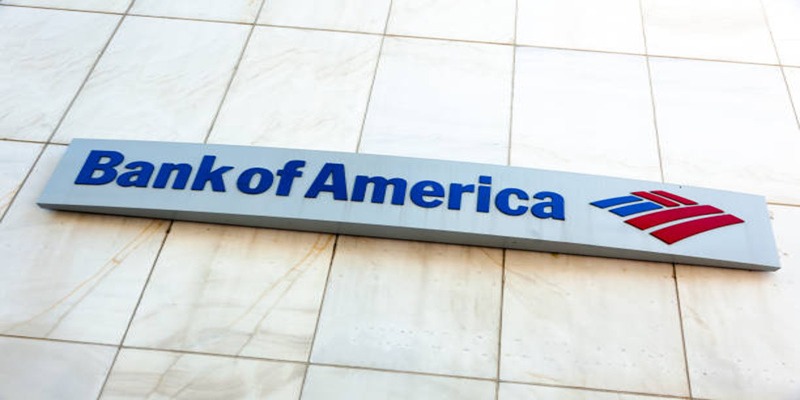Welcome to the comprehensive guide on understanding American Depository Shares (ADS). ADS is a significant financial instrument that allows investors outside the U.S. to own shares of foreign companies without the accompanying risks and complexities. Despite being traded, bought, and sold in American exchanges, these shares represent a specified number of shares in a foreign corporation. This guide aims to elucidate the intricacies of ADS, exploring its benefits, risks, and overall implications for the international investment landscape. Whether you're a seasoned investor or a beginner looking to diversify your portfolio, this guide will provide a clear, detailed understanding of American Depository Shares.
The Mechanics of American Depository Shares:

Before delving into the specifics of American Depository Shares, it's important to understand how they work. An ADS is issued by a U.S. bank and represents ownership in a foreign company's shares. This process involves the conversion of foreign shares into ADSs at a specific ratio determined by the issuing bank.
For example, if a company's stock is trading at $50 per share in its home market and the ADS ratio is 2:1, then each ADS would represent two shares of the foreign company's stock at $25 each. The conversion rate may vary depending on factors such as fluctuations in currency exchange rates, dividends, and fees.
How ADSs Work?
There are two types of American Depository Shares: sponsored and unsponsored. Sponsored ADSs are created through an agreement between the issuing bank and the foreign company, while unsponsored ADSs are initiated by a broker without the involvement or consent of the foreign company.
When a foreign company decides to issue ADSs, it registers them with the U.S. Securities and Exchange Commission (SEC), which ensures that the company meets all legal and financial requirements. This registration also allows the ADSs to be traded on American stock exchanges, making it easier for foreign companies to access U.S. capital markets.
The Role of Depository Banks:
Depository banks play a crucial role in the issuance and trading of American Depository Shares. These banks are responsible for holding the foreign company's shares and issuing corresponding ADSs to investors. They also handle all administrative tasks, such as collecting dividends and distributing proxy materials.
Depository banks may also offer services such as currency conversion, tax assistance, and corporate actions to ADS holders. They may charge fees for these services, which can impact the overall return on investment for ADS holders.
The Process of Issuing ADS:
The process of issuing ADSs involves several steps, including registration with the SEC, conversion of foreign shares into ADSs, and listing on American stock exchanges. Once listed, ADSs can be bought and sold by investors like regular stocks.
Advantages of ADSs:

- Diversification: American Depository Shares provide investors with the opportunity to diversify their portfolio by investing in foreign companies without having to deal with the complexities of international markets.
- Access to U.S. Markets: For foreign companies, issuing ADSs provides an avenue for accessing American capital markets and raising funds from U.S. investors.
- Liquidity: Since ADSs are listed on major U.S. stock exchanges, they offer high liquidity, allowing investors to easily buy and sell them.
- Reduced Currency Risk: ADSs are typically denominated in U.S. dollars, which reduces the risk of currency fluctuations for investors.
Benefits for Foreign Companies:
Issuing ADSs can also bring significant benefits to foreign companies. In addition to increased exposure and access to capital, issuing ADSs can also lead to a more diverse shareholder base, improved liquidity for their stock, and potential inclusion in major market indices.
Risks Associated with ADSs:
While there are numerous advantages to investing in American Depository Shares, they also come with certain risks that investors should be aware of. These include:
- Foreign Exchange Risk: Since ADSs represent shares in a foreign company, investors are exposed to currency risk as the value of the shares may fluctuate due to changes in exchange rates.
- Political and Economic Risks: Investing in foreign companies through ADSs also exposes investors to potential political and economic risks in the company's home country.
- Lack of Transparency: Unlike U.S. companies, foreign companies may not adhere to the same reporting standards, making it difficult for investors to get a clear picture of their financials.
Successful utilization of ADS by Companies:
Over the years, many companies have successfully utilized American Depository Shares to expand their global presence and raise capital. From technology giants like Alibaba and Samsung to consumer brands such as Nestle and Adidas, a wide range of companies have chosen to issue ADSs. This has led to increased visibility and investment opportunities for both the companies and investors.
Investors who profited from ADS:
Investors who have taken advantage of ADSs have also seen success in their portfolios. By diversifying into foreign markets through ADSs, investors have been able to benefit from the growth and performance of companies that may not be available on their local stock exchange.
Conclusion:
American Depository Shares have become a popular financial instrument for both investors and foreign companies. With their unique benefits and risks, ADSs offer an efficient and accessible way to invest in global markets. As more companies continue to utilize ADSs, it is clear that they will play a significant role in the future of international investing. So, investors should be aware of the potential benefits and risks associated with ADSs before making any investment decisions.











